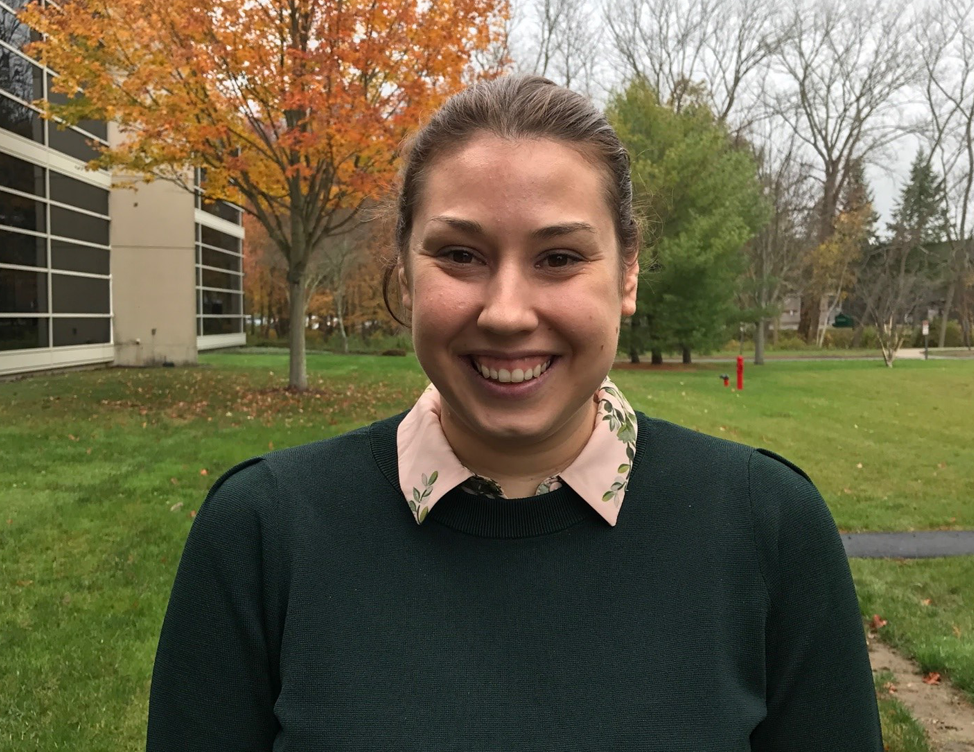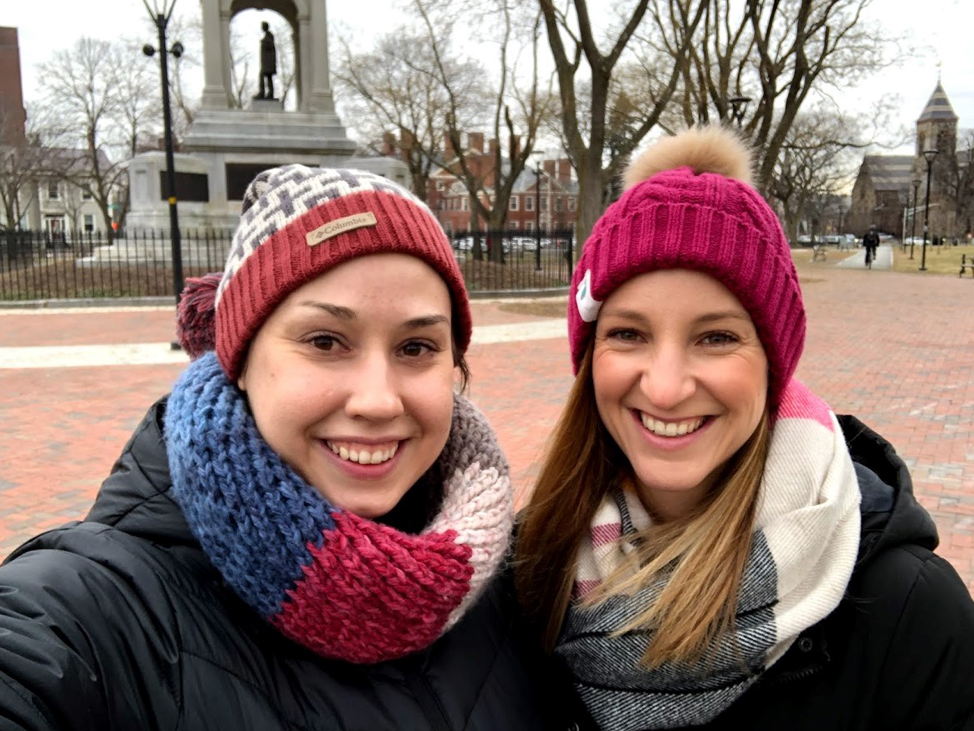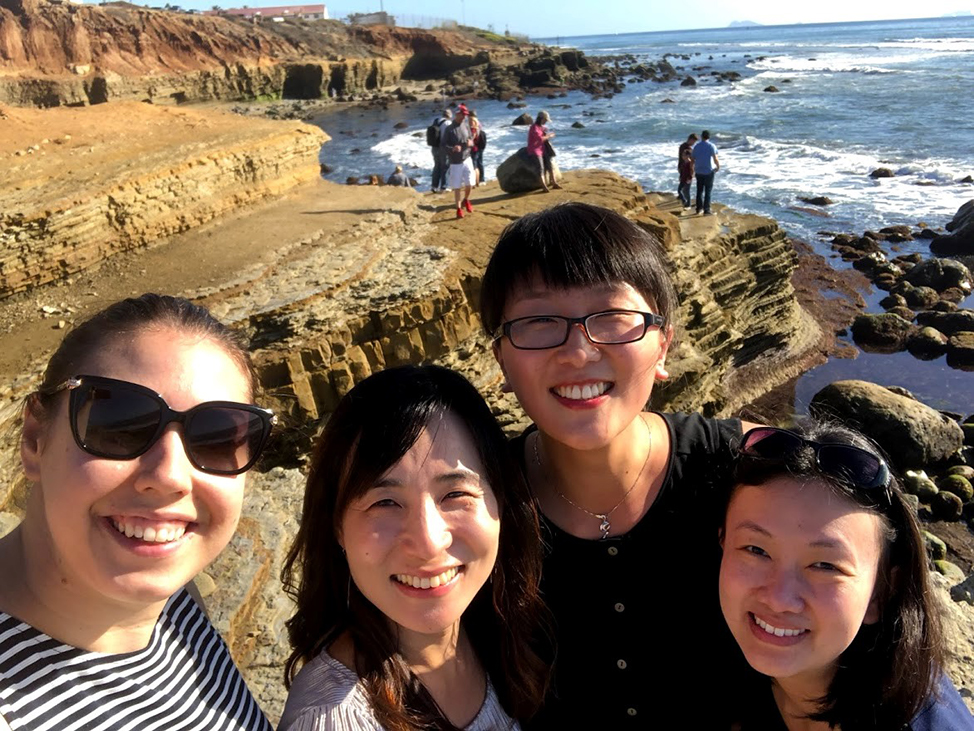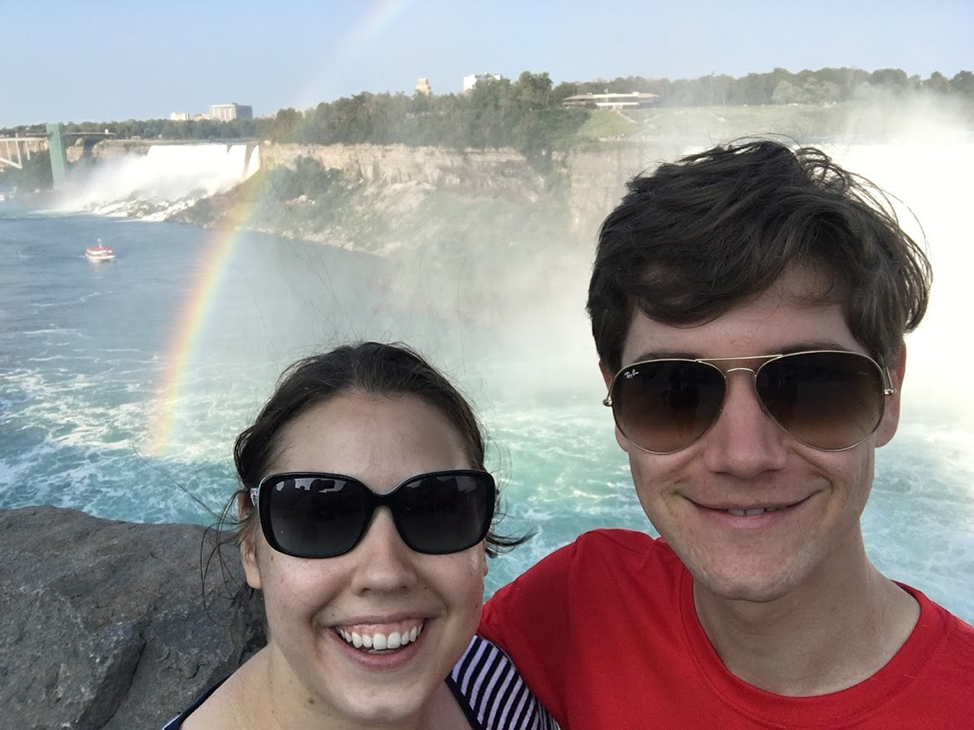30 June 2021

Dr Jessica Wojciechowski
Pharmacometrician, Associate Director at Pfizer
Bachelor of Pharmaceutical Science/Bachelor of Pharmacy (Honours)
Doctorate by Research (PhD), Pharmacy and Medical Science
This past year has been an unusual one to say the least. At Pfizer’s Groton-Connecticut site – where pharmacometrician and pharmacy graduate Dr Jessica Wojciechowski is an Associate Director – things have been a little busier with the COVID-19 Pfizer vaccine development plan and authorisation.
Managing a workforce at home between significant demands at an accelerated speed has been a challenge, and while her expertise in traditional small and large molecule drugs are very different compared to the pharmacological properties of a vaccine, this past year has been one of intense innovation for Jessica and her team in assisting Pfizer in several other development programs related to COVID-19 drug therapies.
After completing a PhD in Pharmacy and Medical Science at UniSA, Jessica made her way to the US and her abilities were recognised early on at Pfizer as she was quickly promoted to an Associate Director – a rare feat for someone at the company for less than three years.
In this role, she leads the planning, analysis, and implementation of model-informed drug development for several assets coming through clinical development at Pfizer, working primarily in the inflammation and immunology space which includes inflammatory autoimmune diseases in rheumatology (rheumatoid arthritis), gastroenterology (ulcerative colitis and Crohn’s disease), and dermatology (alopecia areata, vitiligo, atopic dermatitis, psoriasis, etc).

“It was certainly an exciting time working at Pfizer during the development and the emergency use authorization of the vaccine in the US last year,” Jessica says. “However, the last year has also been chaotic from a work and personal perspective.”
“Several trips home to Australia in 2020 were cancelled, plans to travel to Europe or around the US were also re-considered. I have not flown on a plane, rode on public transport, or travelled a significant distance since March 2020.”
“I have been working from home since March 2020, though I have been highly productive promoting and implementing model-informed drug development for my programs and have been less distracted from the social environment that is open space offices. I can’t help myself sometimes with a little bit of a ‘water-cooler’ chat or a ‘long lunch’.”
As a pharmacometrician for Pfizer, Jessica uses these modelling and simulation methods to quantify and understand what the body does to a drug when it is administered and how it moves around the body following a dose (pharmacokinetic) and what the drug does to the body in terms of efficacy and safety (pharmacodynamic).

Essentially, Jessica works towards ensuring that the right dose is given to the right patient at the right time, and our health professionals are provided with the adequate tools to aid them in making those decisions.
She examines this pharmacokinetic and pharmacodynamic relationship to rationalise doses for a drug that maximise the benefit and risk ratio in patients, and remarkably, even automating one of the standard pharmacokinetic-pharmacodynamic analyses during this time.
This brilliant innovation has significantly reduced the time Jessica and her colleagues spend on this type of analysis, allowing more time for them to devote to vital activities in this time of the development and other therapies for COVID-19.
The team also often conduct small clinical trials that quantify the difference in exposure between healthy participants and those with renal or hepatic impairment, as the kidneys and liver are organs predominantly involved in eliminating drugs from the body.
So, another significant development this past year Jessica has spearheaded was necessary when a number of Pfizer’s studies were cancelled to be conscious of the fact that they were evaluating a drug that could modulate the immune system during a global pandemic in participants that were otherwise healthy.

“In March 2020, we did not know how long the pandemic would last and when sites would re-open to complete the study, so decided to not enrol healthy participants into the study, but instead leverage prior knowledge about the drug in healthy participants from our previous studies,” Jessica says.
The prior knowledge was in the form of a pharmacometrics model that they used to simulate thousands of trials of healthy participants that were then used as the comparator group for the already evaluated severe renal impairment cohort.
“I am particularly proud of this project because it was a novel approach to conducting this type of study and received acceptance from regulatory agencies, serving as an example for model-informed drug development.”
“It saved Pfizer significant research and development costs, and it did not compromise the safety of our healthy volunteers during the pandemic.”

Now that the vaccinations in the North-Eastern United States – where Jessica and her partner have just bought an apartment in Mystic, Connecticut in a 1904 building that used to be a school – have had a fantastic take up, case numbers of COVID-19 are beginning to ease.
Mask mandates have been lifted, so when the pair are not painting, furniture shopping, and exploring their new town, Jessica is happy to be more comfortable in travelling again just in time for Summer.
“Connecticut is a very small state, but with a lot of breweries, such that weekends are spent exploring somewhere, or visiting an old favourite, and sampling a few of their offerings,” Jessica says.
“Now that the rate of COVID-19 cases is decreasing, weekend trips to New York City and Boston (2.5 and 1.5 hours by train, respectively) are back on the calendars.”
“However, our Nintendo Switch has shown to be a fantastic investment during the pandemic too!”




